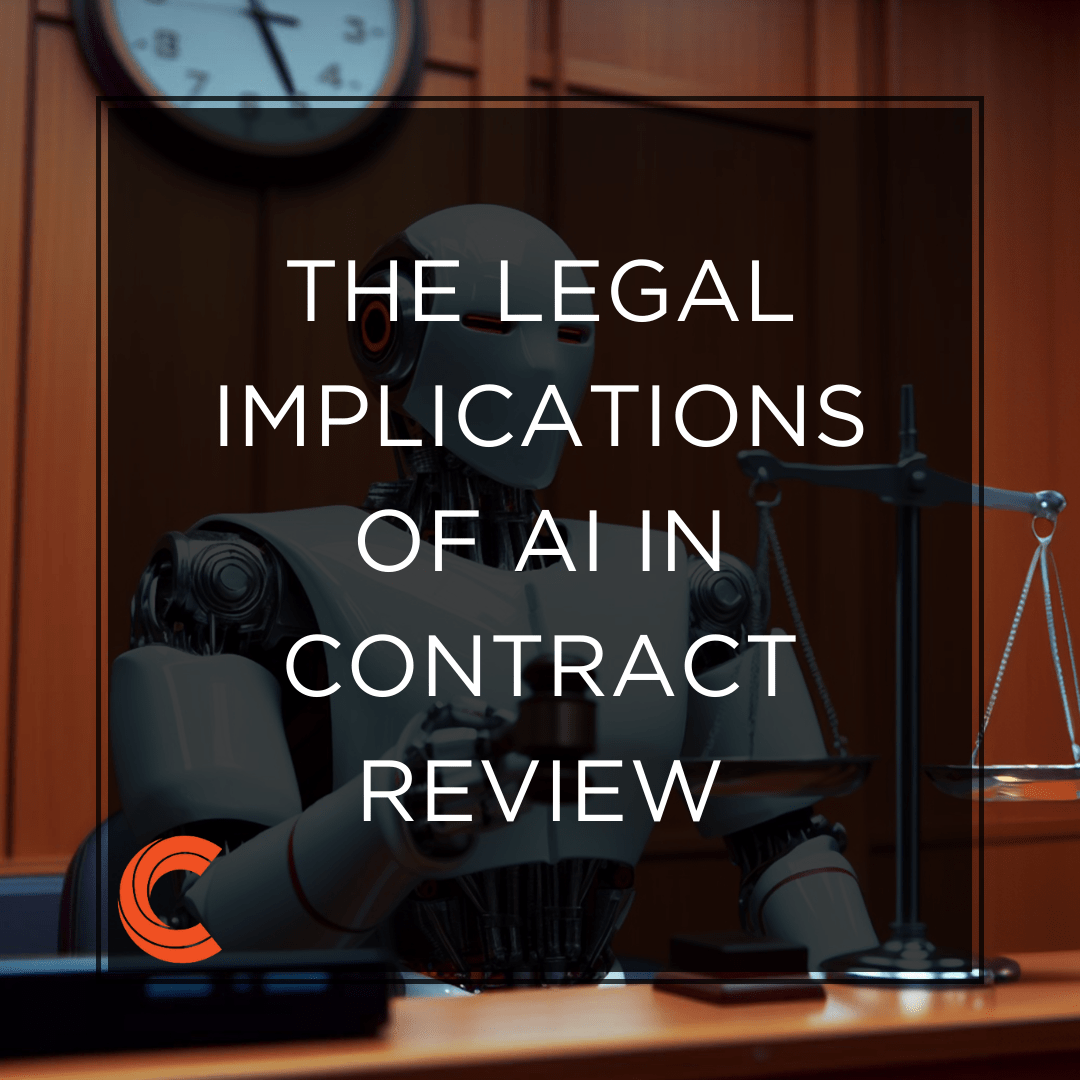Artificial Intelligence (AI) is transforming how businesses operate, particularly in contract review. AI tools are now more sophisticated, offering speed and precision. However, integrating AI into legal processes comes with risks. Understanding the legal implications of AI in contract review is essential for businesses that want to protect themselves and use these tools responsibly.
The Rise of AI in Contract Review
AI tools are gaining popularity in contract review due to their efficiency. They can quickly scan, analyze, and highlight key points within contracts. This reduces the time spent on manual review, allowing legal teams to focus on more complex tasks. AI-powered tools can detect errors, inconsistencies, and missing clauses, reducing the likelihood of costly mistakes.
While AI brings many benefits, businesses should approach its use with caution. Relying too heavily on AI could expose companies to significant risks.
Key Legal Implications to Consider
When implementing AI in contract review, businesses must consider the following legal implications:
1. Accuracy and Liability Concerns
AI tools are designed to minimize human error, but they are not infallible. If an AI system misinterprets or overlooks critical information, who is liable for the resulting consequences? This is a gray area in the legal landscape. Companies must ensure that there is a clear understanding of accountability when using AI tools. Relying solely on AI without human oversight could lead to disputes, especially if an error causes financial loss or legal exposure.
2. Data Privacy and Security Issues
Contract review often involves handling sensitive and confidential information. When using AI, this data must be protected against breaches and misuse. AI systems rely on large datasets to function effectively, which raises concerns about data privacy. Companies must comply with data protection laws like GDPR and CCPA. Any violation can lead to severe penalties and damage to a company’s reputation.
3. Intellectual Property Rights
AI systems learn and improve through data analysis. However, this raises questions about intellectual property (IP) rights. If an AI tool is trained using proprietary contract templates, does the original owner retain IP rights over the AI’s output? Businesses should seek legal advice on how to protect their IP when using AI systems. Understanding the nuances of IP laws in this context is critical to avoid potential conflicts.
4. Ethical Considerations
The use of AI in contract review also presents ethical challenges. AI systems operate based on algorithms that may not account for nuanced human judgment. This can lead to biased outcomes, particularly in contracts involving sensitive issues like discrimination or employment. Ensuring that AI tools are used ethically is vital. Businesses must establish guidelines to prevent biases and ensure fairness in contract review.
5. Regulatory Compliance
AI in contract review is subject to evolving regulations. Laws governing AI usage vary by jurisdiction, and staying compliant is essential. Companies should monitor legislative developments that could impact the use of AI in contract processes. Ignorance of these regulations could result in fines or other legal repercussions.
The Role of Human Oversight
Despite AI’s advantages, human oversight remains crucial. AI should be seen as a tool that complements, rather than replaces, human expertise. Lawyers bring judgment, context, and experience that AI cannot replicate. Combining AI’s efficiency with human insight ensures a thorough and reliable contract review process. This hybrid approach minimizes risks while maximizing the benefits of AI.
The Future of AI in Contract Review
AI technology is evolving rapidly, and its role in contract review will likely expand. However, businesses must remain vigilant about the associated legal risks. As AI continues to develop, legal frameworks will need to adapt. Companies that stay informed and proactive will be better positioned to leverage AI effectively and responsibly.
How Carbon Law Group Can Help
Navigating the legal landscape of AI in contract review can be challenging. Carbon Law Group provides expert guidance on integrating AI tools into your business while managing the associated risks. Our team can help you understand the legal implications, protect your data, and ensure compliance with relevant laws. By partnering with Carbon Law Group, you can harness the power of AI while safeguarding your business interests.
Conclusion
AI in contract review offers significant benefits, but it also presents legal challenges. Businesses must carefully consider issues related to accuracy, data privacy, intellectual property, ethics, and compliance. Human oversight is essential to balance AI’s efficiency with sound judgment. As AI technology advances, staying informed about legal developments is key. For businesses looking to integrate AI into their contract review processes, Carbon Law Group is here to provide the support and expertise needed to navigate this complex landscape.





